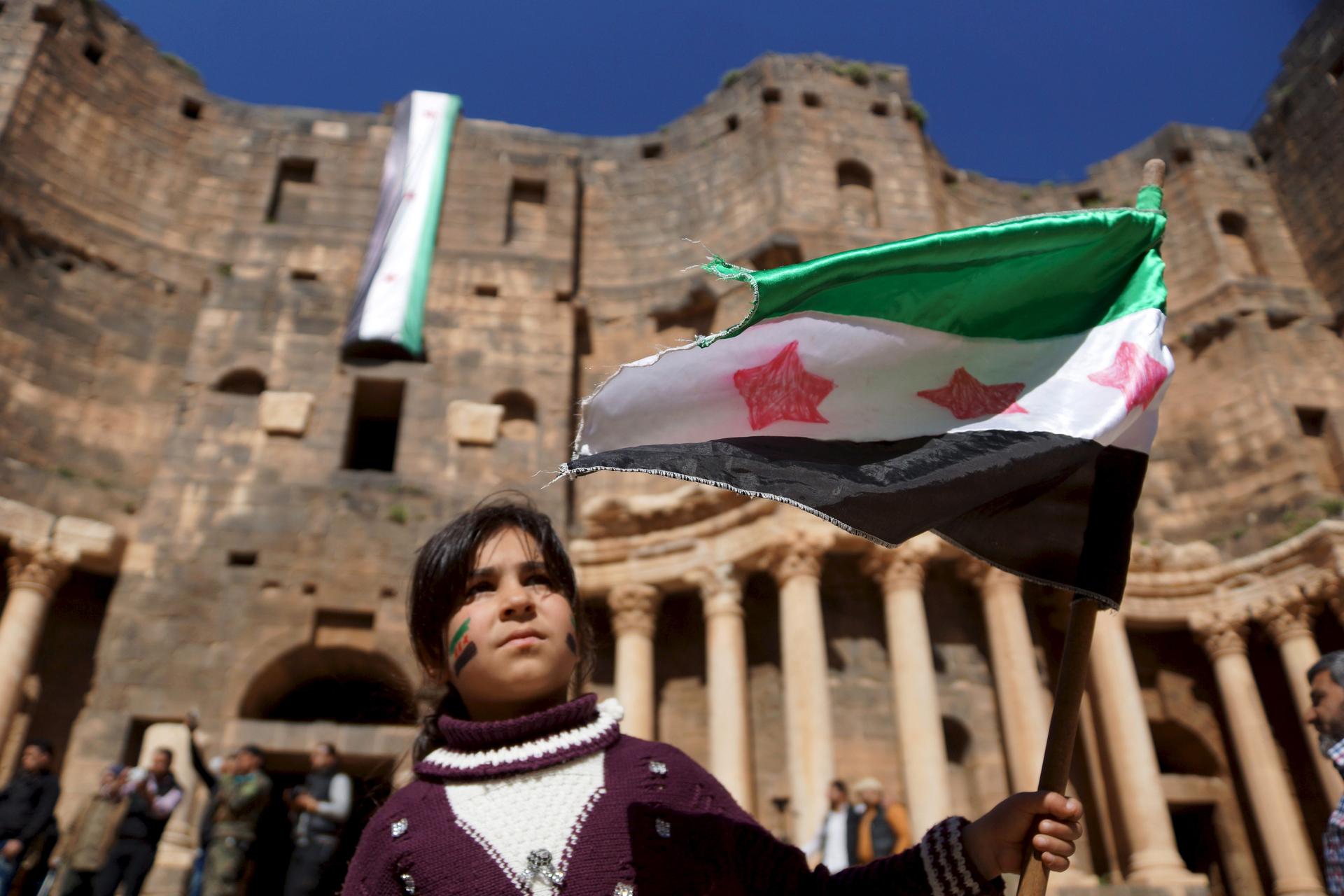A Syrian girl waves an opposition flag during an anti-government protest inside a 2nd century Roman amphitheater in the historic Syrian southern town of Bosra al-Sham, in Deraa, Syria.
A halt in fighting across Syria is mostly holding, but Russia’s targeting of moderate Syrian rebel groups “needs to stop,” State Department spokesman John Kirby says.
As the warring parties in Syria prepare to sit down for more peace talks next week, Kirby says Russia and the US have “closed the gap” somewhat when it came to their respective positions on Syria.
“It’s clear that through their military activities the Russians have bolstered and supported the Assad regime — there’s no question about that. But there’s also no question about the fact that they have agreed on two really key important things with us: One, you’ve got to have a political solution in Syria that leads to a whole, unified, non-sectarian Syria. Number two, that they were going to support and implement this cessation of hostilities.”
Kirby says the success of the reduction in fighting bodes well for the talks, slated to begin March 14.
“For the first time in five years, the Syrian people are living with a level of reduced violence in the country. We think these are positive developments, by and large, and that it’s going to […] provide the space for the conditions for talks to resume.”
Since the ceasefire began on February 27, there has been a marked drop in violence across Syria. The Syrian Observatory for Human Rights, a UK-based monitor, told AFP that the number of civilian deaths a day had fallen by 90 percent since the truce came into force. Despite that, opposition groups have criticised the ceasefire, claiming to have been targeted by continued Russian airstrikes.
“There have been violations of the cessation of hostilities. There’s no question about that. And we’re not walking away from the fact that there are still strikes being taken against opposition groups, and that needs to stop. That is absolutely in violation of the cessation of hostilities,” Kirby says.
Further complicating US strategy in Syria is the fact that its allies can’t appear to stop fighting each other. The Kurdish YPG militia — a key US ally in the fight against ISIS in northern Syria — accused America’s NATO partner Turkey of shelling its positions near the border on Monday. The Kurds have also fought pitched battles against rebel groups in the city of Aleppo.
“We’ve recognized from the very beginning that this is a complicated situation, and that even those members of the coalition working with us against Daesh had different views about what the future of Syria was gonna look like, which is why Secretary [of State John] Kerry pushed so hard for a parallel diplomatic track to deal with the civil war.
Kirby says other options are being considered if ceasefire talks fail, but that talks offer a glimmer of hope for an end to the conflict.
“We want a political solution to the war in Syria. We want a Syria that the Syrian people can call home and not be gassed and barrel-bombed. “
